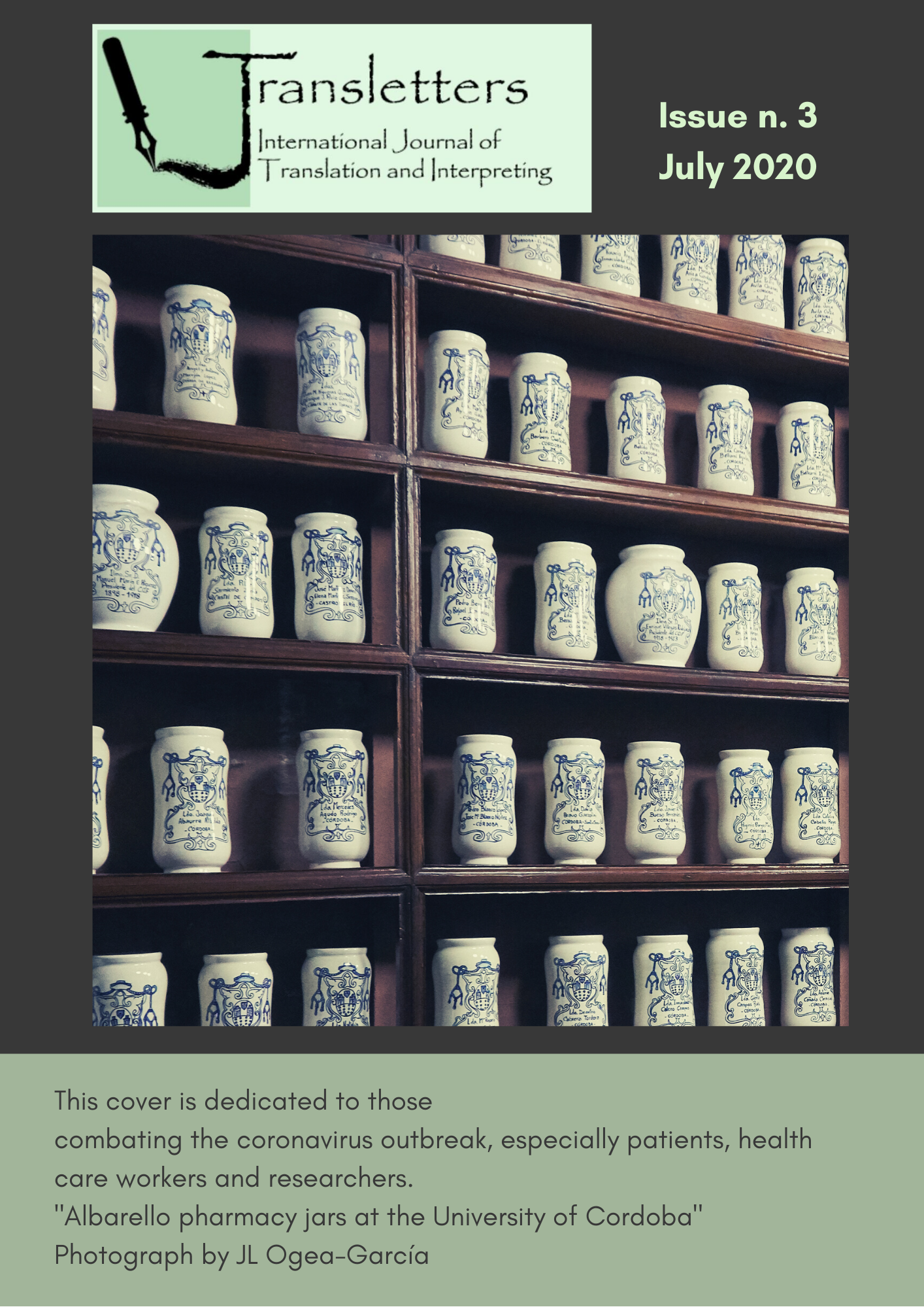(Re)translation and Reception of Neologisms in Science Fiction A Methodological Proposal
Contenido principal del artículo
Resumen
This paper proposes a new methodology for studying neologisms in the translation and retranslation of the science fiction novel Altered Carbon (Richard Morgan, 2001), its adaptation as a TV series by Netflix (2018) and the reception of literary and audiovisual works by audiences.
The main goals of this descriptive and empirical study are, on the one hand, to analyse the techniques employed to translate the neologisms in both the book and the series and, on the other hand, to identify the extent to which audiences understand and accept these new words.
Descargas
Detalles del artículo
Política propuesta para las revistas que ofrecen acceso abierto
Los/as autores/as que publican en esta revista aceptan las siguientes condiciones:
1. Los/as autores/as conservan los derechos de autor y conceden a la revista el derecho de primera publicación con el trabajo licenciado simultáneamente bajo una Licencia de Atribución de Creative Commons, la cual permite a otras personas compartir el trabajo con un reconocimiento de la autoría del trabajo y la publicación inicial en esta revista.
2. Los/as autores/as pueden establecer acuerdos contractuales adicionales para la distribución no exclusiva de la versión publicada del trabajo en la revista (por ejemplo, enviarlo a un repositorio institucional), con un reconocimiento de su publicación inicial en esta revista.
3. Se permite y anima a los/as autores/as a publicar su trabajo previo a la versión final publicada en esta revista una vez aceptado (por ejemplo, en repositorios institucionales o en su sitio web), ya que puede dar lugar a intercambios productivos, así como a una citación más temprana y mayor del trabajo publicado (Véase El efecto del acceso abierto).

